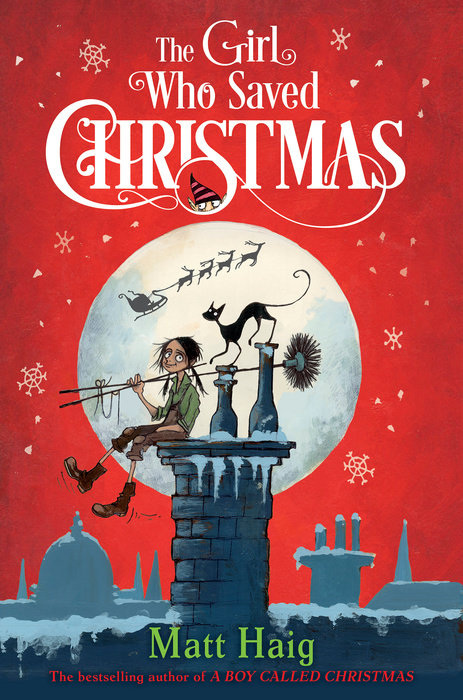Spotlight: Furthermore by Tahereh Mafi
/Inspired by her childhood love of books like A Secret Garden and The Chronicles of Narnia, bestselling author Tahereh Mafi crafts a spellbinding new world where color is currency, adventure is inevitable, and friendship is found in the most unexpected places.
There are only three things that matter to twelve-year-old Alice Alexis Queensmeadow: Mother, who wouldn’t miss her; magic and color, which seem to elude her; and Father, who always loved her. The day Father disappears from Ferenwood he takes nothing but a ruler with him. But it’s been almost three years since then, and Alice is determined to find him. She loves her father even more than she loves adventure, and she’s about to embark on one to find the other.
But bringing Father home is no small matter. In order to find him she’ll have to travel through the mythical, dangerous land of Furthermore, where down can be up, paper is alive, and left can be both right and very, very wrong. It will take all of Alice’s wits (and every limb she’s got) to find Father and return home to Ferenwood in one piece. On her quest to find Father, Alice must first find herself—and hold fast to the magic of love in the face of loss.
Excerpt
The sun was raining again.
Soft and bright, rainlight fell through the sky, each drop tearing a neat hole in the season. Winter had been steady and predictable, but it was quite poked through now, and spring was peeking out from underneath it. The world was ready for a change. The people of Ferenwood were excited for spring, but this was to be expected; they had always been fond of predictable, reliable sorts of changes, like night turning into day and rain turning into snow. They didn’t much care for night turning into cake or rain turning into shoelaces, because that wouldn’t make sense, and making sense was terribly important to these people who’d built their lives around magic. And squint as they might, it was very difficult for them to make any sense of Alice.
Alice was a young girl and, naturally, she was all the things you’d expect a young girl to be: smart and lively and passionate about any number of critical issues. But Alice was also lacking a great deal of something important, and it was this—her lack of something important—that made her so interesting, and so very unusual. More on that soon.
***
The afternoon our story begins, the quiet parts of being alive were the busiest: wind unlocking windows; rainlight nudging curtains apart; fresh-cut grass tickling unsocked feet. Days like this made Alice want to set off on a great adventure, and—at almost twelve years old—she’d very nearly figured out how to fashion one together. The annual Surrender was only a single pair of days away, and Alice—who was determined to win—knew it was her chance to set sail for something new.
She was on her way home now, occasionally peeking over her shoulder at the glittering town in the distance. The village square was undergoing no small transformation in honor of the upcoming festivities, and the clamor of instruction and construction rang out across the hills. Alice jumped from flagstone to flagstone, her face caught in the rainlight glow, her hands grasping for a touch of gold. The town’s excitement was contagious, and the air was so thick with promise Alice could almost bite into it. She smiled, cheeks appled in delight, and stared up at the sky. The light was beginning to spark and fade, and the clouds were still hard at work weaving together, breaking and building as they had been all week. One more day of this, Alice thought, and everything would change.
She couldn’t wait.
She’d moved on to the main road now, a dirt path flanked by green. She held tight to her basket as neighbors passed, nodding hello and waving good-bye, happy to have remembered her clothes today. Mother was always bothering her about that.
Alice plucked a tulip from her pocket and bit off the top. She felt the petals pressing against her tongue; she could taste the velvet, the magenta of it all. She closed her eyes and licked her lips before biting into the stem. Not quite green but brighter, more vibrant; there was a song in that color and she could feel it singing inside of her. She bent down to greet a blade of grass and whispered,Hello, me too, me too, we’re still alive.
Alice was an odd girl, even for Ferenwood, where the sun occasionally rained and the colors were brighter than usual and magic was as common as a frowning parent. Her oddness was evident even in the simplest things she did, though most especially in her inability to walk home in a straight line. She stopped too many times, wandering off the main path, catching deep breaths and holding them, too selfish to let them go. She spun until her skirts circled around her, smiling so wide she thought her face would break and blossom. She hopped around on tiptoe, and only when she could stand it no longer would she exhale what wasn’t hers to keep.
Alice would grow up to be a wildflower, Father once said to her. A wildflower in flowing skirts, braided hair dancing from head to knee. She’d always hoped that he was right, that maybe Mother had gotten it wrong, that Alice was never meant to be such a complicated thing with all these limbs and needs. She often wanted to plant herself back into the earth to see if she’d grow into something better this time, maybe a dandelion or an oak tree or a walnut no one could crack. But Mother insisted (the way she often did) that Alice must be a girl, and so she was.
Alice didn’t like Mother very much. She found her a bit old and confusing, and didn’t like the way Mother worried about walls and doors and the money that put them there. But Alice loved Mother, too, in the way that children did. Mother was soft and warm, and Mother’s smiles came easily when she looked at Alice. Anger and tears, too, but those Alice never cared for.
Alice gripped her basket tighter and danced down the road to a song she found in her ear; her toes warmed the earth, and her hair, too heavy for her head, tried to keep up. Her bangles mimicked the rain, simple melodies colliding in the space between elbows and wrists. She closed her eyes. She knew this dance the way she knew her own name; its syllables found her, rolled off her hips with an intimacy that could not be taught.
This was her skill, her talent, her great gift to Ferenwood. It was her ticket to greatness. She’d been practicing for years and years and was determined that it would not be for nothing.
It would not b—
“Hey there! What are you doing?”
Alice startled. Something tripped and fell, and she looked around in dismay to realize it had been her. Crumpled skirts and silent bangles, the rainlight gone from the sky. She was late. Mother would be upset again.
“Hey!” The same voice as before. “What are you—”
Alice gathered her skirts and fumbled in the dark for her basket, reaching blindly as panic set in. Don’t talk to strangers, Mother had always said—especially strange men.Being afraid meant it was okay to forget your manners. If you’re afraid, you never have to be nice. Do you understand?
Alice had nodded.
And now Mother was not here and she could not explain why, exactly, but Alice was afraid. So she did not feel the need to be nice.
The stranger wasn’t much of a man at all, it turned out. More like a boy. Alice wanted to tell him very firmly to go away, but she’d somehow gotten it into her head that being quiet meant being invisible and so she prayed that her silence would somehow make him blind, instead of louder.
Unfortunately, her wish seemed to work on both of them.
The sun had folded itself away and the moon was in no hurry to replace it. Darkness engulfed her. Alice’s basket was nowhere to be felt or found.
She was very worried.
Suddenly Alice understood all about being worried and she promised herself she would never judge Mother for being worried all the time. Suddenly she understood that it is a very hard thing, to be afraid of things, and that it takes up so much time. Suddenly she understood why Mother rarely got around to doing the dishes.
“Does this belong to you?”
Alice turned just a bit and found a chest in her face. There was a chest in her face and a heart in that chest and it was beating quite hard. She could hear the pitters, the patters—the blood rushing around in ebbs and flows.Don’t be distracted, she told herself, begged herself. Think of Mother.
But, oh.
What a heart.
What a symphony inside that body.
Alice gasped.
He’d touched her arm, so, really, she had no choice but to punch him. Her bangles were helpful in this regard. She punched and kicked and screamed a little and she wrenched her basket from his hands and she ran all the way home, out of breath and a little excited, so glad the moon had finally decided to join her.
***
Alice never did get to tell Mother her story.
Mother was so upset Alice was late that she nearly bit off her daughter’s hands. She didn’t give Alice a chance to explainwhy her skirts were dirty or why the basket had broken (only a little bit, really) orwhy her hair was so full of grass. Mother made a terrible face and pointed to a chair at the table and told Alice that if she was late one more time she would knot her fingers together. Again.
Oh, Mother was always threatening her.
Threatening made Mother feel better but made Alice feel bored. Alice usually ignored Mother’s threats (If you don’t eat your breakfast I will whisk you into an elephant,she once said to her, and Alice half hoped she really would), but then one time Alice took her clothes off at the dinner table and Mother threatened to turn her into aboy, and that scared her so dizzy that Alice kept on her outerthings for a whole week after that. Since then, Alice had often wondered whether her brothers had been boys to begin with, or whether they’d just been naughty enough to deserve being tricked into it.
***
Mother was unpacking Alice’s basket very carefully, paying far more attention to its contents than to any of her four children sitting at the worn kitchen table. Alice ran her hands along its weathered top, the bare boards rubbed smooth from years of use. Father had made this table himself, and Alice often pretended she could remember the day he built it. That was silly of course; Father had built it long before she was born.
She glanced toward his place at the table. His chair was empty—as it had grown accustomed to being—and Alice dropped her head, because sadness had left hinges in her bones. With some effort she managed to look up again, and when she did, she found her brothers, whose small forms took up the three remaining chairs, staring at her expectantly, as though she might turn their tunics into turnips. On any other occasion she would’ve liked to, had she been so inclined, but Mother was already quite mad and Alice did not want to sleep with the pigs tonight.
Alice was beginning to realize that while she didn’t much like Mother, Mother didn’t much like her, either. Mother didn’t care for the oddness of Alice; she wasn’t a parent who was predisposed to liking her children. She didn’t find their quirks endearing. She thought Alice was a perfectly functional, occasionally absurd child, but on an honest afternoon Mother would tell you that she didn’t care for children, never had, not really, but here they were. (There were plenty of nice things Mother had said about Alice, too, but Mother was never very good at making sure she said those things out loud.)
Alice picked out a blossom from her dinner and dropped it on her tongue, rolling the taste of it around in her mouth. She loved blossoms; one bite and she felt refreshed, ready to begin again. Mother liked dipping them in honey, but Alice preferred the unmasked taste. Alice liked truth: on her lips and in her mouth.
The kitchen was warm and cozy, but only halfheartedly. Alice and Mother did their best in the wake of Father’s absence, but some evenings all the unspoken hurts piled high on their plates and they ate sorrow with their syrup without saying a word about it. Tonight wasn’t so bad. Tonight the stove glowed lavender as Mother stoked the flames and tossed in some of the berries Alice had collected. Soon the whole house smelled of warm figs and peppermints and Alice was certain that if she tried, she could lick the air right out of the room. Mother was smiling, finally content. Ferenberries always succeeded in reminding Mother of happier times with Father, of days long ago when all was safe and all was good. The berries were a rare treat for those lucky enough to find them (they were a fruit especially difficult to procure), but in Father’s absence Mother had become obsessed. The trouble was, she needed Alice to find the ferenberries (I’ll explain why later), and Alice always did, because life at home had been so much better since the berries. Alice had been late and she’d been lazy, messy and argumentative, but she had never not come home with the berries.
She almost hadn’t tonight.
Alice always felt Mother was using her for the berries; she knew they were the only medicine that helped Mother’s heart in Father’s absence. Alice knew Mother needed her, but she did not feel appreciated; and though she felt sad for Mother, she felt more sorry than sad. She wanted Mother to grow up—or maybe grow down—into the mother she and her brothers really needed. But Mother could not unbecome herself, so Alice was resigned to loving and disliking her just as she was, for as long as she could bear it. Soon, Alice thought, very soon, she would be on her way to something better. Something bigger. The seasons were changing in Ferenwood, and Alice had waited long enough.
She would win the Surrender and she would show Mother she could make her own way in the world and she would never need a pair of stockings again. She would be an explorer! An inventor! No—a painter! She would capture the world with a few broad strokes! Her hand moved of its own accord, making shapes in her honey-laden plate. Her arm flew up in a moment of triumph and her paintbrush fork flew from her hands only to land, quite elegantly, in her brother’s hair.
Alice ducked down in her chair, the future forgotten, as Mother came at her with a ladle.
Oh, she would be sleeping with the pigs tonight.
Excerpted from Furthermore by Tahereh Mafi. Copyright © 2016 by Tahereh Mafi. All rights reserved. No part of this excerpt may be reproduced or reprinted without permission in writing from the publisher.
Buy on Amazon | Barnes and Noble
About the Author
Photo: © Tana Gandhi
Tahereh Mafi is the New York Times and USA Today bestselling author of the Shatter Me series and Furthermore. She can usually be found over-caffeinated and stuck in a book. You can find her online just about anywhere at @TaherehMafi or on her website, www.taherehbooks.com.






















